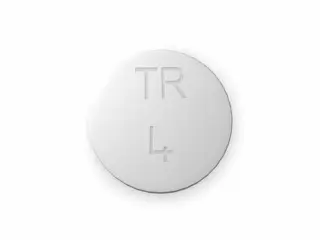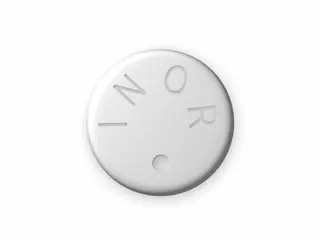Women's Health


Discover a wide range of trusted women's health products including supplements, vitamins, and medications designed to support hormonal balance, reproductive health, and overall wellness. Shop now for effective solutions tailored to your needs.
Women's health medications cover a wide range of treatments addressing hormonal balance, reproductive health, bone strength, and sexual wellness. Many women rely on these medicines to manage conditions such as infertility, menopause, infections, or contraception. Below is a review of popular drugs in this category, explaining their uses and benefits.
Arimidex (Anastrozole) is mainly used to treat hormone receptor-positive breast cancer in postmenopausal women. It works by lowering estrogen levels in the body. This drug can help prevent cancer recurrence. It is generally well-tolerated but may cause joint pain and hot flashes.
Aygestin is a progestin used for conditions like abnormal uterine bleeding, endometriosis, and amenorrhea. It helps regulate menstrual cycles and reduce pelvic pain. Aygestin can cause side effects like mood changes and headache. It is often prescribed when natural progesterone is low.
Cialis, though primarily known for men's erectile dysfunction, can in rare cases be used off-label in women with sexual arousal disorders. However, it is not commonly recommended for female patients. Its main role remains in men's health.
Clomid (Clomiphene citrate) is a common fertility medication. It helps stimulate ovulation in women who have trouble conceiving. Clomid is often the first-line treatment for infertility due to anovulation. Side effects might include hot flashes, bloating, and mood swings.
Cycrin is another name often used for Clomid in some markets. Its actions and uses are identical to Clomid, helping induce ovulation for women struggling to get pregnant.
Cytotec (Misoprostol) is used in gynecology primarily for medical abortion and to induce labor. It causes uterine contractions to expel contents. It should only be taken under medical supervision due to potential risks and side effects.
Diflucan (Fluconazole) is an antifungal medication. It effectively treats vaginal yeast infections, which are common among women. Diflucan provides fast relief and is usually taken as a single dose. Side effects are rare but can include nausea or headache.
Dostinex (Cabergoline) is used for disorders related to high prolactin levels, like prolactinomas. It suppresses prolactin production in the pituitary gland. This medication helps restore menstrual cycles and fertility in affected women. Possible side effects include dizziness and nausea.
Duphaston contains dydrogesterone, a synthetic progesterone. It is widely used to treat menstrual disorders, support early pregnancy, and manage endometrial issues. Duphaston is preferred due to fewer side effects compared to natural progesterone.
Estrace (Estradiol) is a form of estrogen used in hormone replacement therapy (HRT) for menopausal symptoms. It helps reduce hot flashes, vaginal dryness, and osteoporosis risk. Estrace should be used cautiously under medical advice due to risks associated with estrogen therapy.
Flibanserin is prescribed for hypoactive sexual desire disorder (HSDD) in premenopausal women. It works on neurotransmitters in the brain to boost libido. Flibanserin requires daily use and can cause dizziness, nausea, and fatigue.
Fosamax (Alendronate) helps treat osteoporosis in women, especially postmenopausal. It strengthens bones and reduces fracture risk. Fosamax must be taken carefully, often with water on an empty stomach, to avoid esophageal irritation.
Levlen is a combined oral contraceptive pill containing estrogen and progestin. It is used to prevent pregnancy and regulate menstrual cycles. Levlen may also help reduce acne and menstrual pain. Side effects can include nausea and breast tenderness.
Mircette is another combined oral contraceptive with a unique hormone dosing schedule. It is effective for contraception and may be preferred by women experiencing mood swings with other pills.
Nolvadex (Tamoxifen) is mainly used to treat and prevent breast cancer. It works by blocking estrogen’s effects in breast tissue. It is often prescribed to premenopausal women with hormone receptor-positive tumors. Side effects may include hot flashes and increased risk of blood clots.
Ovral is a high-dose combined oral contraceptive used primarily for emergency contraception and birth control. It prevents ovulation and thickens cervical mucus. It may cause nausea and irregular bleeding.
Parlodel (Bromocriptine) is used to treat disorders caused by high prolactin levels and some menstrual problems. It helps restore ovulation by lowering prolactin. It can cause low blood pressure and dizziness.
Plan B is a well-known emergency contraceptive containing levonorgestrel. It is used after unprotected sex to prevent pregnancy. Effects are best within 72 hours but it can be taken up to five days after. Common side effects include nausea and fatigue.
Ponstel (Mefenamic acid) is a nonsteroidal anti-inflammatory drug used to relieve menstrual pain and inflammation. It is effective for dysmenorrhea but should be used with caution to avoid stomach irritation.
Prometrium contains natural progesterone. It is used for hormone replacement in menopausal women and to support pregnancy in cases of progesterone deficiency. Prometrium has fewer side effects than synthetic progestins.
Provera (Medroxyprogesterone acetate) treats menstrual disorders and is also used in hormone replacement therapy. It regulates periods, reduces excessive bleeding, and treats amenorrhea. Common side effects include weight gain and mood changes.
Serophene is another name for Clomiphene, used to stimulate ovulation and treat infertility. It promotes follicle development and ovulation cycles. Side effects tend to be mild but monitoring is important.
Viagra (Sildenafil) is rarely used in women but sometimes prescribed off-label to improve sexual function by increasing blood flow. Its primary use remains in male erectile dysfunction, and evidence for female benefits is limited.
Yasmin is a popular combined oral contraceptive pill. It contains drospirenone, which has anti-androgenic effects helpful for acne and premenstrual symptoms. Yasmin also regulates menstrual cycles and prevents pregnancy. Some users report better mood balance.
Overall, these medications cover a spectrum of women's health needs: fertility, contraception, menopausal support, bone health, and treatment of specific disorders. Choosing the right drug depends on individual health status, symptoms, and doctor guidance. Most medicines require careful adherence to dosage and monitoring for side effects. Always consult a healthcare professional before starting any treatment to ensure safety and effectiveness.























